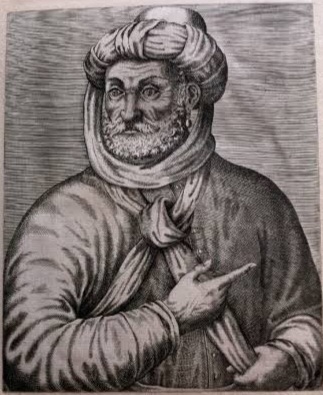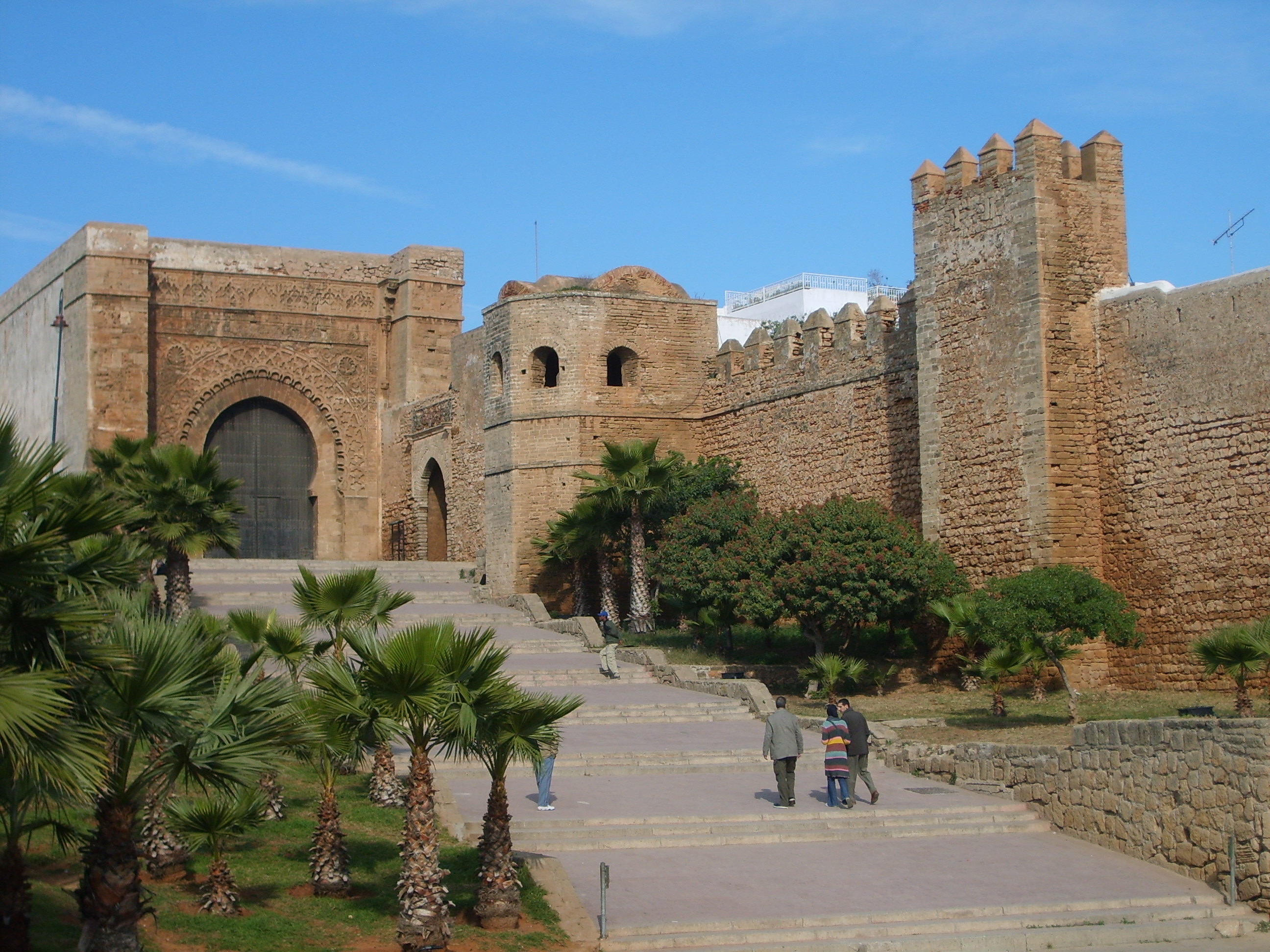|
Ksar-el-Kebir
El-Ksar el Kebir (Arabic: القصر الكبير; ber, ⵍⵇⵚⵔ ⵍⴽⴱⵉⵔ, lqṣr lkbir) is a city in northwestern Morocco, about 160 km north of Rabat, 32 km east of Larache and 110 km south of Tangier. It recorded a population of 126,617 in the 2014 Moroccan census. The city is also known as Alcazarquivir in Spanish or Alcácer-Quibir in Portuguese. The name means "the big castle". The city is located nearby the Loukous river that makes El-Ksar-el-Kebir one of Morocco's richest agricultural regions. El-Ksar el-Kebir provides almost 20% of the needed sugar of Morocco. Neighbouring cities and towns include Larache, Chefchaouen, Arbawa and Tateft. History 1st millennium BCE: Established as a Carthaginian colony; after the Punic Wars it came under Roman control with the name ''Oppidum Novum''. In 1578, King Sebastian of Portugal suffered a crushing defeat in the Battle of Alcácer Quibir at the hands of the King Abd al-Malik of Morocco, which ended P ... [...More Info...] [...Related Items...] OR: [Wikipedia] [Google] [Baidu] |
Battle Of Alcácer Quibir
The Battle of Alcácer Quibir (also known as "Battle of Three Kings" ( ar, معركة الملوك الثلاثة) or "Battle of Wadi al-Makhazin" ( ar, معركة وادي المخازن) in Morocco) was fought in northern Morocco, near the town of Ksar-el-Kebir (variant spellings: ''Ksar El Kebir'', ''Alcácer-Quivir'', ''Alcazarquivir'', ''Alcassar'', etc.) and Larache, on 4 August 1578. A Moroccan victory, the battle has been described as "the greatest military disaster the Portuguese ever suffered in the course of their overseas expansion." It marked an end to Portuguese attempts to reconquer territories it had lost in Morocco. The combatants were the army of the deposed Moroccan Sultan Abu Abdallah Mohammed II Saadi, Abu Abdallah Mohammed II, with his ally, the List of Portuguese monarchs#House of Aviz-Beja, King of Portugal Sebastian of Portugal, Sebastian I, against a large Moroccan army under the new Sultan of Morocco (and uncle of Abu Abdallah Mohammed II) Abu Marwa ... [...More Info...] [...Related Items...] OR: [Wikipedia] [Google] [Baidu] |
Regions Of Morocco
Regions are currently the highest administrative divisions in Morocco. Since 2015, Morocco officially administers 12 regions, including one (Dakhla-Oued Ed-Dahab) that lies completely within the disputed territory of Western Sahara and two (Laâyoune-Sakia El Hamra and Guelmim-Oued Noun) that lie partially within it. The regions are subdivided into a total of 75 second-level administrative divisions, which are Prefectures and provinces of Morocco, prefectures and provinces. A region is governed by a directly elections in Morocco, elected regional council. The president of the council is responsible for carrying out the council's decisions. Prior to the 2011 Moroccan constitutional referendum, 2011 constitutional reforms, this was the responsibility of the Wali, the representative of the central government appointed by the King, who now plays a supporting role in the administration of the region. Regions since 2015 On 3 January 2010, the Moroccan government established the Con ... [...More Info...] [...Related Items...] OR: [Wikipedia] [Google] [Baidu] |
Loukkos River
The Loukkos River (واد لوكوس) (Spanish:Río Luco) is a major river in northern Morocco. Although it is relatively short (about 100 km), the river is the third largest in Morocco with an average flow of 50 m³/s. The Loukkos river's source is located in the Rif Mountains and flows into the Atlantic Ocean in the city of Larache; the city's port is on the river. The Loukkos river basin is 3,730 km² and contains one of the most fertile and productive agricultural lands in the country. One of the river's tributaries, Oued Makhazine, bears great historical importance since it witnessed one of the most decisive battles in the history of Morocco: the Battle of Alcácer Quibir. In the battle on 4 August 1578, the joint army of deposed Moroccan monarch Abu Abdallah Mohammed II Saadi and his ally, King Sebastian of Portugal, was defeated by the army of the new Moroccan sultan from the same Saadi dynasty (who was also Abu Abdallah's uncle). The Lukkus is the largest river i ... [...More Info...] [...Related Items...] OR: [Wikipedia] [Google] [Baidu] |
Abu Yusuf Yaqub Al-Mansur
Abū Yūsuf Yaʿqūb ibn Yūsuf ibn Abd al-Muʾmin al-Manṣūr (; c. 1160 – 23 January 1199 Marrakesh), commonly known as Yaqub al-Mansur () or Moulay Yacoub (), was the third Almohad Caliph. Succeeding his father, al-Mansur reigned from 1184 to 1199. His reign was distinguished by the flourishing of trade, architecture, philosophy and the sciences, as well as by victorious military campaigns in which he was successful in repelling the tide of the ''Reconquista'' in the Iberian Peninsula. Military actions Al-Mansur's father was killed in Portugal on 29 July 1184; upon reaching Seville with his father's body on 10 August, he was immediately proclaimed the new caliph. Al-Mansur vowed revenge for his father's death, but fighting with the Banu Ghaniya, delayed him in Africa. After inflicting a new defeat on the Banu Ghaniya, he set off for the Iberian Peninsula to avenge his father's death. His 13 July 1190 siege of Tomar, center of the Portuguese Templars failed to capture ... [...More Info...] [...Related Items...] OR: [Wikipedia] [Google] [Baidu] |
Hassan II Of Morocco
Hassan II ( ar, الحسن الثاني, translit=al-Ḥasan aṯ-ṯhānī;), with the prefix "Mulay" before his enthronement 9 July 1929 – 23 July 1999) was the King of Morocco from 1961 until his death in 1999. He was a member of the 'Alawi dynasty. He was the eldest son of Sultan Mohammed V, and his second wife, Lalla Abla bint Tahar. He was the first commander-in-chief of the Royal Armed Forces and was named crown prince in 1957. He was enthroned as king in 1961 following his father's death. Hassan's reign was marked by the start of the Western Sahara conflict and the Sand War. He was also the target of two failed coup d'états that were opposed to the absolute monarchy in Morocco: one in 1971 and the other in 1972. Hassan's conservative rule reportedly strengthened the 'Alawi dynasty's rule over Morocco and Western Sahara. He was accused of authoritarian practices and civil rights abuses, particularly during the Years of Lead. A truth commission was set up after his ... [...More Info...] [...Related Items...] OR: [Wikipedia] [Google] [Baidu] |
Protectorate
A protectorate, in the context of international relations, is a State (polity), state that is under protection by another state for defence against aggression and other violations of law. It is a dependent territory that enjoys autonomy over most of its internal affairs, while still recognizing the suzerainty of a more powerful sovereign state without being a possession. In exchange, the protectorate usually accepts specified obligations depending on the terms of their arrangement. Usually protectorates are established de jure by a treaty. Under certain conditions—as with History of Egypt under the British#Veiled Protectorate (1882–1913), Egypt under British rule (1882–1914)—a state can also be labelled as a de facto protectorate or a veiled protectorate. A protectorate is different from a colony as it has local rulers, is not directly possessed, and rarely experiences colonization by the suzerain state. A state that is under the protection of another state while retain ... [...More Info...] [...Related Items...] OR: [Wikipedia] [Google] [Baidu] |



